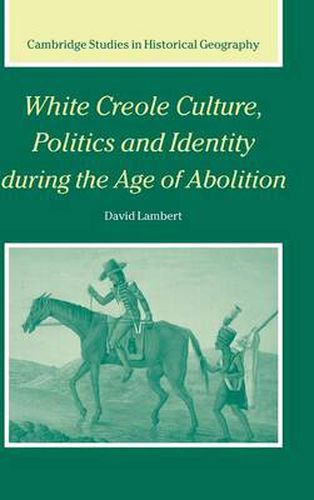Readings Newsletter
Become a Readings Member to make your shopping experience even easier.
Sign in or sign up for free!
You’re not far away from qualifying for FREE standard shipping within Australia
You’ve qualified for FREE standard shipping within Australia
The cart is loading…






David Lambert explores the political and cultural articulation of white creole identity in the British Caribbean colony of Barbados during the age of abolitionism (c.1780-1833), the period in which the British antislavery movement emerged, first to attack the slave trade and then the institution of chattel slavery itself. Supporters of slavery in Barbados and beyond responded with their own campaigning, resulting in a series of debates and moments of controversy, both localised and transatlantic in significance. They exposed tensions between Britain and its West Indian colonies, and raised questions about whether white slaveholders could be classed as fully ‘British’ and if slavery was compatible with ‘English’ conceptions of liberty and morality. David Lambert considers what it meant to be a white colonial subject in a place viewed as a vital and loyal part of the empire but subject to increasing metropolitan attack because of the existence of slavery.
$9.00 standard shipping within Australia
FREE standard shipping within Australia for orders over $100.00
Express & International shipping calculated at checkout
David Lambert explores the political and cultural articulation of white creole identity in the British Caribbean colony of Barbados during the age of abolitionism (c.1780-1833), the period in which the British antislavery movement emerged, first to attack the slave trade and then the institution of chattel slavery itself. Supporters of slavery in Barbados and beyond responded with their own campaigning, resulting in a series of debates and moments of controversy, both localised and transatlantic in significance. They exposed tensions between Britain and its West Indian colonies, and raised questions about whether white slaveholders could be classed as fully ‘British’ and if slavery was compatible with ‘English’ conceptions of liberty and morality. David Lambert considers what it meant to be a white colonial subject in a place viewed as a vital and loyal part of the empire but subject to increasing metropolitan attack because of the existence of slavery.